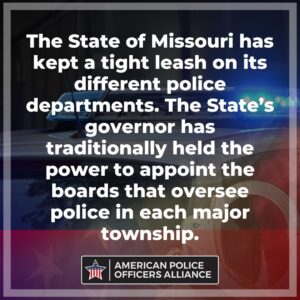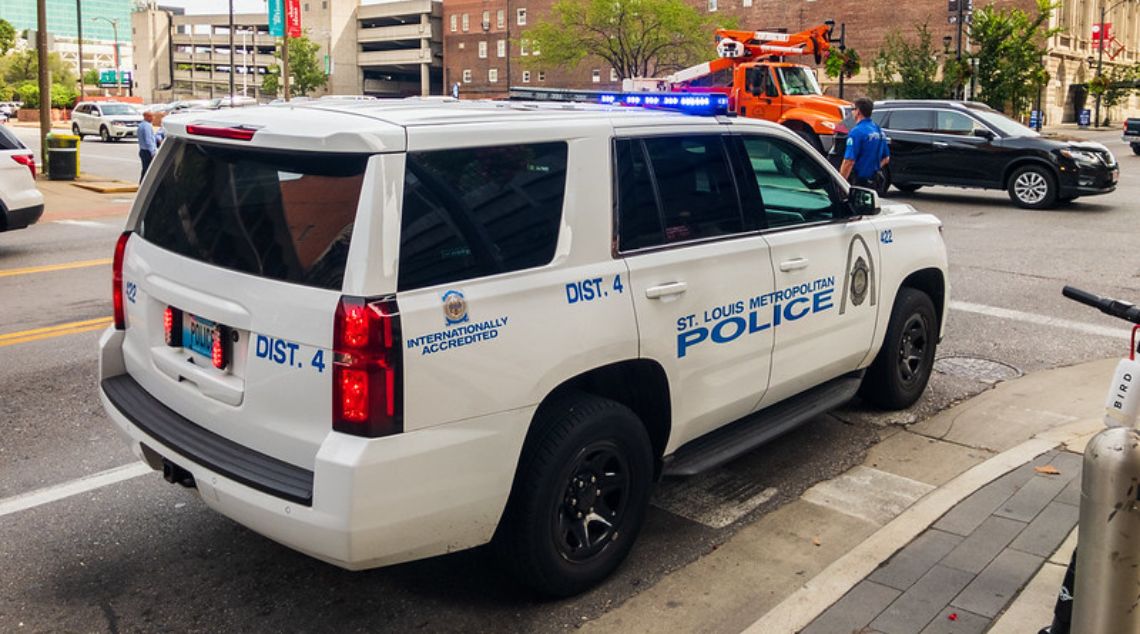In St. Louis, State lawmakers are attempting to bring the city’s Police Department back into their control. For this, they recently passed a series of bills that will expand the jurisdiction of state-controlled precincts, taking over the prosecution of violent crime, and a larger influence on its leadership.
The St. Louis Police Department: A Complicated History
Historically, the State of Missouri has kept a tight leash on its different police departments. The State’s governor has traditionally held the power to appoint the boards that oversee police in each major township. Meanwhile, fund allocation and distribution fell into the State’s House and Senate.
In 2013, following a statewide ballot measure, control over the St. Louis Police Department was devolved to local city officials. In nearby Kansas City (the state’s other major urban center), a similar ballot failed to pass by a very narrow margin.
Initially, the purpose of this bill was to better serve St. Louis citizens. The city’s racial and social makeup is remarkably different from the rest of the state, and therefore, it would benefit from a more tailored approach.
However, the move failed to create the desired “cooperation utopia.” Following the killing of Michael Brown in nearby Ferguson, the city of St. Louis endured months of protests, and the occasional riot or looting incident. The incident fell under the state-controlled St. Louis County Police territory, not the St. Louis City Police, and yet, policing practices across the region came under heavy criticism
Did Local Control Work?

The prevailing opinion across the GOP-controlled Missouri Senate is that the St. Louis experiment has been a failure. Over the past 10 years, homicide rates in St. Louis (historically the highest in the state) have continued climbing. In addition, the City’s police force is now facing critical understaffing levels, with over 20% of its positions vacant.
It should be said that these issues are not exclusive to St. Louis, and did not appear magically after the Department’s control was handed over to local officials. Kansas City, which remained under State control, also experienced a spike in homicide rates and suffers from understaffing. And yet, the issues seem deeper and more complex in St. Louis, where every maneuver needs to face the scrutiny of the city’s political actors.
How Will State Control Impact Policing Power in St. Louis?
The effectiveness of police strategies is determined by complex issues, and it’s rare to find a single, clear-cut solution. For Ken Novak, professor of criminal justice at the University of Missouri-Kansas City, a simple takeover will not solve St. Louis’ problems. And yet, proponents of the bill point out that many of its provisions will boost morale among police officers. The bill includes a $7,000 raise in the starting pay for police officers and has earned support from the Police union. But although the bill was approved by the House on March 7th, it was subsequently blocked by Senate Democrats on May 12. Meanwhile, the city’s elected Chief Prosecutor, Kimberly Gardner, has made her resignation effective as of June 1st.
Image Credit: Photo by Jonathan Cutrer on Flickr Attribution 2.0 Generic (CC BY 2.0)










